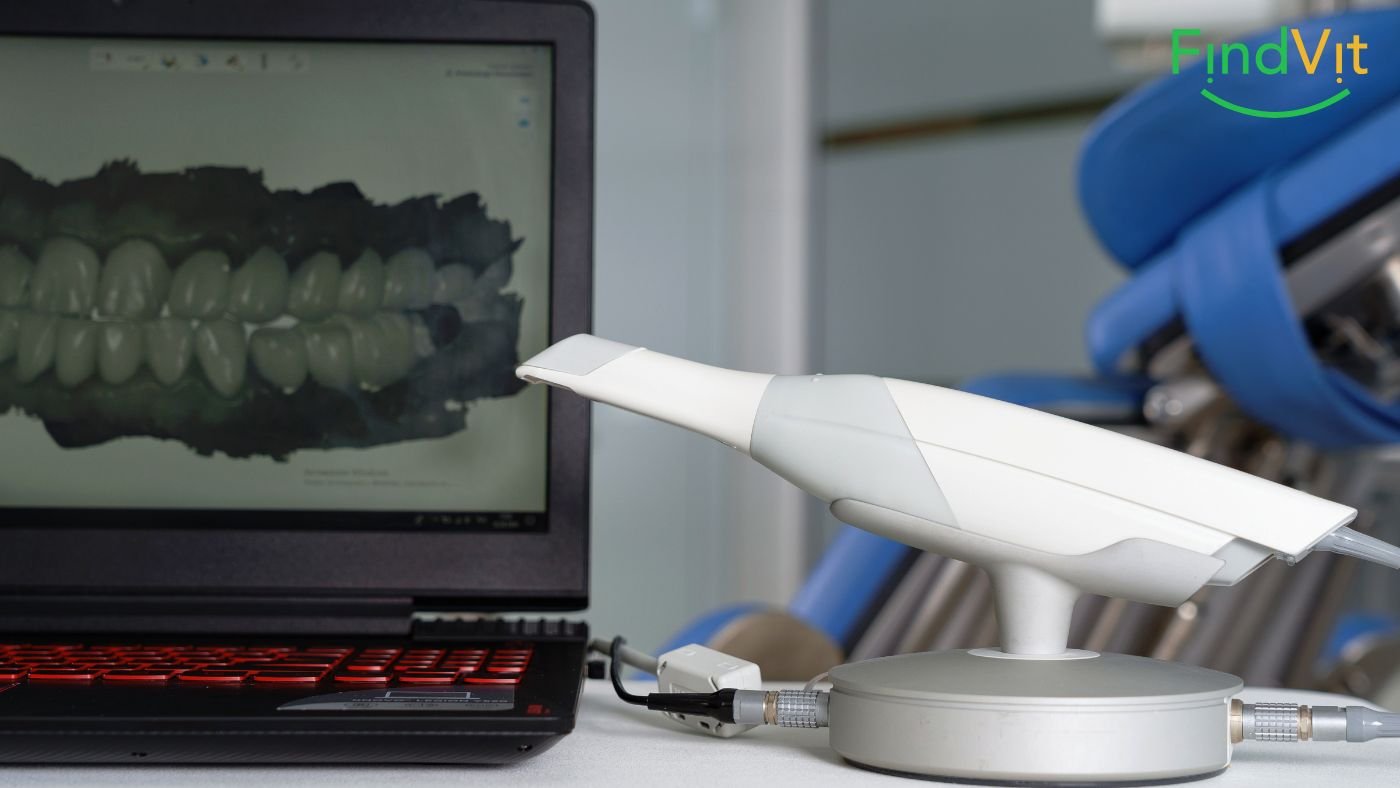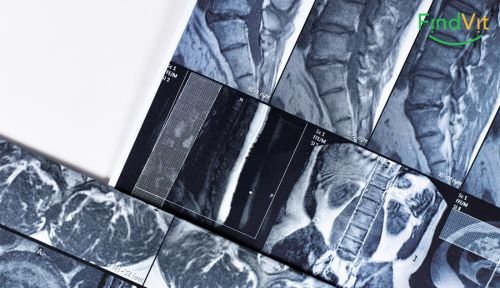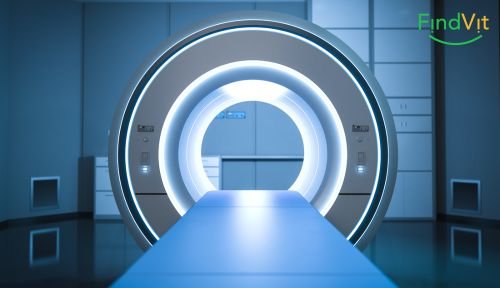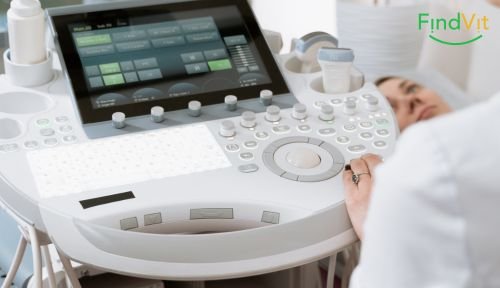Kaip Sustiprinti Širdį: Kardiologų Patikrinti Metodai Be Vaistų
Kasmet pasaulyje nuo širdies ir kraujagyslių ligų miršta apie 17 milijonų žmonių, ir šios ligos išlieka pagrindinė lietuvių mirties priežastis. Tačiau gera žinia ta, kad…

Artificial intelligence in medicine has made impressive strides, successfully passing medical licensing exams and handling internal medicine cases. Even more impressively, special AI algorithms can detect sepsis in premature babies with 75% accuracy and reduce medical coding search time by as much as 70%.
Moreover, since the first robotic surgery in 1997, artificial intelligence technologies in medicine have been rapidly evolving, changing the processes of diagnosis, treatment and patient care. Today, AI not only helps doctors analyze CT, X-ray and MRI images, but also contributes to earlier and more accurate cancer diagnosis.
In this article, we will examine how artificial intelligence is changing healthcare, what impact it has on daily patient care, and what future prospects await us in 2024.
Modern healthcare is changing rapidly, with more and more services moving to the digital space. Remote consultations and virtual assistants are becoming commonplace, helping to ensure more efficient patient care.
Remote doctor consultations are conducted via video calls, phone conversations, or emails. Virtual medical assistants (VMAs) perform important administrative tasks:
In addition, VMA can send automatic reminders about visits and health advice directly to patients. However, it is important to mention that patients are always guaranteed the opportunity to contact the responsible employee directly.
Smart health tracking apps allow you to track a variety of health metrics. They measure steps taken, calories burned, heart rate, and even sleep quality. The health tracking app market is growing at a rate of 20-30% per year.
These apps not only help you monitor your physical condition, but also encourage a healthier lifestyle. However, experts emphasize that it is important not to make independent decisions about your health based solely on app data.
Artificial intelligence in medicine helps create personalized recommendations based on collected data. The system can:
For example, AI can analyze a patient's blood pressure, activity level, or sleep statistics and provide summaries. It is important to note that all of this data is processed in accordance with the provisions of the General Data Protection Regulation.

First of all, modern medicine increasingly relies on the early diagnostic capabilities opened up by artificial intelligence. Modern AI systems not only helps doctors make decisions, but also actively participates in disease prevention processes.
AI technologies in medicine are creating a new paradigm for prevention. Artificial intelligence systems are able to analyze large amounts of data and identify potential health problems before they occur. These systems are particularly effective in the prevention of cardiovascular diseases, where AI algorithms can:
Latest AI technologies significantly improves cancer diagnostics. For example, a blood test developed by miRoncol, using a patented machine learning algorithm, can detect as many as 12 different types of cancer in the early stages. In addition, artificial intelligence is able to recognize cancerous formations in imaging diagnostics even before physical symptoms appear.
Artificial intelligence algorithms are now actively used to analyze genetic risks. The system can analyze DNA sequences and identify possible mutations in a matter of hours. As a result, doctors can:
It is important to note that all high-risk AI systems must meet strict requirements:
These requirements ensure that AI technologies are used safely and effectively, and that patients receive reliable and high-quality healthcare.

Personalized medicine with artificial intelligence opens up new possibilities in healthcare. One of the main goals is to replace routine disease treatment with active health management, including preventive screenings and early treatment.
Artificial intelligence helps doctors create individual treatment plans by analyzing thousands of similar cases and selecting the most effective treatment strategy. The system is able to adjust treatment plans in real time, taking into account changes in the patient's condition. These plans include:
Artificial intelligence also revolutionizes nutritional optimization. Smart apps analyze calorie and micronutrient intake and provide individual recommendations. The system takes into account:
| Aspect | Benefit |
|---|---|
| Genetic profile | Personalized nutritional recommendations |
| Metabolism | Optimal nutrient absorption |
| Lifestyle | Customized nutrition plan |
In particular, artificial intelligence helps predict the effectiveness of drugs by analyzing a patient's genetic characteristics and health history. IBM Watson's computer system is already being used to help doctors make decisions about breast cancer treatment, especially in centers where oncology specialists are limited.
Additionally, models for predicting the effectiveness of lung cancer therapy using deep learning help oncologists personalize treatment using CT scan images. The system can also analyze large amounts of different test results and select the most appropriate targets for intervention.
It is important to note that personalized medicine requires close collaboration between scientists, clinicians, and industry. However, this approach is already showing positive results, especially in the field of oncology, where AI assists specialists in making clinical decisions.

Data security is becoming an increasingly important priority in digital healthcare. Patient health data is a special category of information that requires special protections.
First of all, medical data is a part of private life and is protected by the right to privacy. However, data loss can affect the integrity of medical data and disrupt patient treatment. Therefore, healthcare institutions must ensure the highest level of data protection.
Health data protection includes the following key aspects:
In addition, modern data protection technologies ensure the secure processing of medical information. Security measures include:
| Security level | Measures applied |
|---|---|
| Physical | Server protection, access control |
| Technical | Encryption, firewalls |
| Administrative | Employee training, safety protocols |
It is also important to mention that patients have clearly defined rights to their medical data:
No artificial intelligence technology can threaten an individual's right to privacy. Healthcare institutions must inform patients about the risks and benefits of using artificial intelligence.
It is important to note that patients have the right to refuse to provide data for the purpose of training artificial intelligence systems. The data may only be used for scientific research under conditions of anonymity, except in rare cases.
De-identified data cannot be uploaded to publicly available AI systems unless data privacy is guaranteed. Researchers must ensure that data is collected, used and stored in accordance with the requirements of the General Data Protection Regulation.

Medical technology is advancing rapidly, and big data and its management are becoming the main engine of future medicine. Modern diagnostic and treatment technologies surprise us every day with new possibilities, changing traditional healthcare practices.
First and foremost, the future of medicine relies on data-driven solutions. Artificial intelligence methods are already creating advanced algorithms for analyzing radiology and pathology images that allow:
In addition, artificial intelligence deep learning networks are particularly suitable for evaluating image data, which has led to the emergence of new concepts in medicine such as radiomics and pathomics.
Robotic surgery opens up new possibilities in the operating room. About 900 robotic surgeries have been performed at Klaipėda University Hospital in four and a half years. Advantages of robotic surgery:
| Aspect | Benefit |
|---|---|
| Accuracy | Precise execution of operations |
| Instrument control | Multidirectional movement |
| Surgeon's working conditions | Less fatigue during long operations |
| Patient benefits | Better treatment results |
It is also important to mention that robotic surgery is being developed in three main areas: abdominal surgery, urology, and gynecology.
Finally, artificial intelligence is changing not only the work of hospitals, but also the daily care of patients at home. In medicine, there is a trend towards more and more automated tests and actions.
Artificial intelligence solutions today can:
Therefore, in the future, it is expected that artificial intelligence systems will become more autonomous and be able to perform even more complex actions. However, it is important to emphasize that artificial intelligence cannot make final decisions regarding diagnosis - this remains the responsibility of the doctor.
Currently, doctors spend most of their time collecting and analyzing data. Artificial intelligence technologies will help reduce this administrative burden, giving doctors more time to directly communicate with patients. Diagnostic information will become much more complete and better processed, which will allow for more effective decisions about patient treatment.
Artificial intelligence in medicine includes technologies that use algorithms and machine learning to analyze medical data, help doctors diagnose diseases, predict treatment outcomes, and improve the quality of patient care.
Artificial intelligence systems can analyze medical images, such as X-rays or MRI scans, and detect subtle changes that may go unnoticed by the human eye, helping to detect diseases such as cancer early.
No, artificial intelligence will not replace doctors, but it will become an important assistant. AI technologies can give doctors more time by automating repetitive tasks and providing insights based on big data.
Key areas include diagnostics, personalized treatment, health monitoring through wearable devices, drug development, and optimization of administrative processes.
The biggest challenges are related to data privacy, ethical issues, integration of technological solutions into existing systems, and training of medical personnel.
Artificial intelligence in medicine is rapidly transforming the healthcare system. In particular, AI technologies help doctors make more accurate decisions, detect diseases early, and create personalized treatment plans. Thus, patients receive higher-quality and more efficient healthcare.
Additionally, remote consultations and smart health monitoring apps are giving patients more opportunities to actively participate in their healthcare. It is important to note that all of these technologies operate in strict compliance with data protection requirements, ensuring patient privacy.
Finally, robotic surgery and advanced diagnostic tools show that artificial intelligence is becoming an integral part of medicine. Therefore, patients can expect even more accurate diagnostics, more effective treatments, and better healthcare outcomes in the future.
Kasmet pasaulyje nuo širdies ir kraujagyslių ligų miršta apie 17 milijonų žmonių, ir šios ligos išlieka pagrindinė lietuvių mirties priežastis. Tačiau gera žinia ta, kad…
The human heart beats an average of more than 2.5 billion times during a lifetime. This amazing organ works tirelessly to maintain a vital pulse rhythm, the rate of which (pulse rate)…

In today's fast-paced world, people often forget one of the most important aspects of health - the importance of rest. Studies show that as many as 7 out of 10 people feel constantly tired and…

KIKI Health Zeolitas - Ceolitas, milteliai, 60 g

Trace Minerals Mega Magnesium 400 mg. Liquid with minerals, 118 ml.

KIKI Health Zeolitas - Ceolitas su aktyvuota anglimi, milteliai 60 g.

KIKI Health Zeolitas - Ceolitas, milteliai, 120 g.

SUPER OMEGA-3 - norvegiški žuvų taukai su Omega-3, didelė koncentracija, 100+30 kapsulių
| Cookie | Duration | Description |
|---|---|---|
| cookielawinfo-checkbox-advertisement | 1 year | Šį slapuką nustato GDPR Cookie Consent papildinys. Slapukas naudojamas išsaugoti vartotojo sutikimą dėl slapukų kategorijoje „Analitiniai“. |
| cookielawinfo-checkbox-analytics | 11 mėnesių | Šį slapuką nustato GDPR Cookie Consent papildinys. Slapukas naudojamas išsaugoti vartotojo sutikimą dėl slapukų kategorijoje „Analitiniai“. |
| cookielawinfo-checkbox-functional | 11 mėnesių | Slapukas nustatomas pagal GDPR slapukų sutikimą, kad būtų įrašytas vartotojo sutikimas dėl slapukų kategorijoje „Funkciniai“. |
| cookielawinfo-checkbox-necessary | 11 mėnesių | Šį slapuką nustato GDPR Cookie Consent papildinys. Slapukai naudojami saugoti vartotojo sutikimą dėl slapukų kategorijoje „Būtini“. |
| cookielawinfo-checkbox-others | 11 mėnesių | Šį slapuką nustato GDPR Cookie Consent papildinys. Slapukai naudojami saugoti vartotojo sutikimą dėl slapukų kategorijoje „Kiti“. |
| cookielawinfo-checkbox-performance | 11 mėnesių | Šį slapuką nustato GDPR Cookie Consent papildinys. Slapukai naudojami saugoti vartotojo sutikimą dėl slapukų kategorijoje „Vykdymas“. |
| elementor | never | Šį slapuką naudoja svetainės „WordPress“ tema. Tai leidžia svetainės savininkui realiuoju laiku įdiegti arba keisti svetainės turinį. |
| viewed_cookie_policy | 11 mėnesių | Slapuką nustato GDPR Cookie Consent įskiepis ir jis naudojamas norint išsaugoti, ar vartotojas sutiko, kad būtų naudojami slapukai, ar ne. Jame nesaugomi jokie asmens duomenys. |
| Cookie | Duration | Description |
|---|---|---|
| _ga | 2 metai | _ga slapukas, įdiegtas Google Analytics, apskaičiuoja lankytojų, seansų ir kampanijos duomenis, taip pat seka svetainės naudojimą svetainės analizės ataskaitoje. Slapukas išsaugo informaciją anonimiškai ir priskiria atsitiktinai sugeneruotą skaičių unikaliems lankytojams atpažinti. |
| _ga_JWS80V051Z | 2 metai | Šį slapuką įdiegė Google Analytics. |
| omnisendSessionID | 30 minučių | Šį slapuką nustato teikėjas Omnisend. Šis slapukas naudojamas unikaliam seanso ID nustatyti. Slapukas statistiniais tikslais renka informaciją apie lankytojų elgesį svetainėje. |
| soundestID | sesijos metu | Šį slapuką nustato teikėjas Omnisend. Šis slapukas naudojamas norint nustatyti, ar lankytojas svetainėje yra naujas, ar lankytojas lankėsi anksčiau. |
| Cookie | Duration | Description |
|---|---|---|
| omnisendAnonymousID | 1 year | Šį slapuką nustato teikėjas Omnisend. Šis slapukas naudojamas išsaugoti vartotojo veiksmą svetainėje su unikaliu ID. Slapukas užšifruoja lankytojo duomenis, kad būtų apsaugoti naudotojo duomenys. |
| soundest-views | sesijos metu | Aprašymas negalimas. |
| woocommerce_recently_viewed | sesijos metu | Aprašymas nepasiekiamas. |
